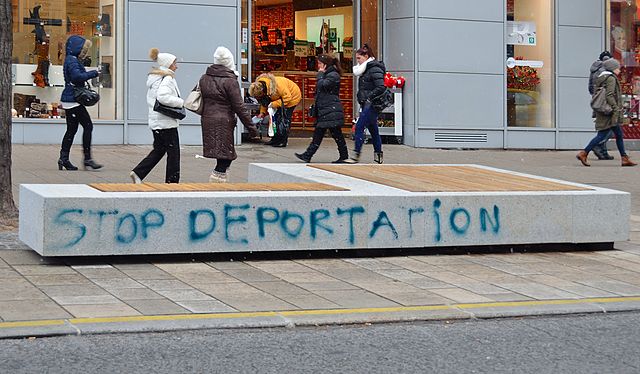In its research published on Thursday, the human rights watchdog warns that “authorities in Croatia, France, Germany, Poland and Romania, among others, have or have attempted to extradite or deport asylum seekers who had fled persecution in the North Caucasus to seek asylum in European states, thereby denying them the right to international protection.”
The report is in line with the continuous endeavors of French authorities to deport 11 individuals from Russia’s Muslim-majority North Caucasus, following an incident in October last year when a Russian-born suspect murdered a French teacher.
“In the days following the Arras attack, President [Emmanuel] Macron called for a ‘ruthless’ approach to what he called ‘extremism,’ with a ‘special approach to young men between the ages of 16 and 25 from the Caucasus,” according to Amnesty International.
In addition to the potential risk of being compelled to fight for Russia in Ukraine, Amnesty International has cautioned that asylum seekers from North Caucasus may be exposed to the danger of torture and other forms of ill-treatment if forcibly returned to the homes they fled.
“People are taken off the streets, and you have two options – either go to jail for 10 years or go to fight,” Amnesty cited a Chechen asylum seeker.
“Jail in Chechnya…it’s like you no longer exist. But at least you might come out after 10 years. It’s probably better than to be mobilized, to fight, to die,” he explained.
The report states that entire communities from the North Caucasus, including predominantly Muslim peoples such as Chechens, Dagestanis, and Ingush, have been labeled as “dangerous extremists,” posing an “existential threat to national security.”
“It is scandalous that despite claims to have frozen all judicial cooperation with Russia following its full-scale invasion of Ukraine, several European states are threatening to send people who fled persecution in Russia’s North Caucasus back to the very place where those abuses have occurred,” according to Nils Muižnieks, director of Amnesty International’s Europe Regional Office.
He emphasized that the plight of those who fled the region has significantly deteriorated due to the further decline in human rights standards in Russia following its invasion of Ukraine.
“They face persecution through torture, arbitrary detention and enforced disappearance, with no accountability at home, and have historically been stigmatized and targeted for deportation or extradition in European states,” said Muižnieks.
Amnesty International cautions that the human rights conditions in the North Caucasus, especially in Chechnya, are extremely concerning.
It added that individuals expressing dissenting opinions, participating in human rights advocacy, or suspected of belonging to the LGBTI community face the risk of being singled out, along with their friends and family.
The human rights organization also emphasized that Russia’s withdrawal from the European Convention on Human Rights (ECHR) in 2022, and the stifling of autonomous human rights monitoring within the nation have substantially increased the likelihood of human rights violations.

